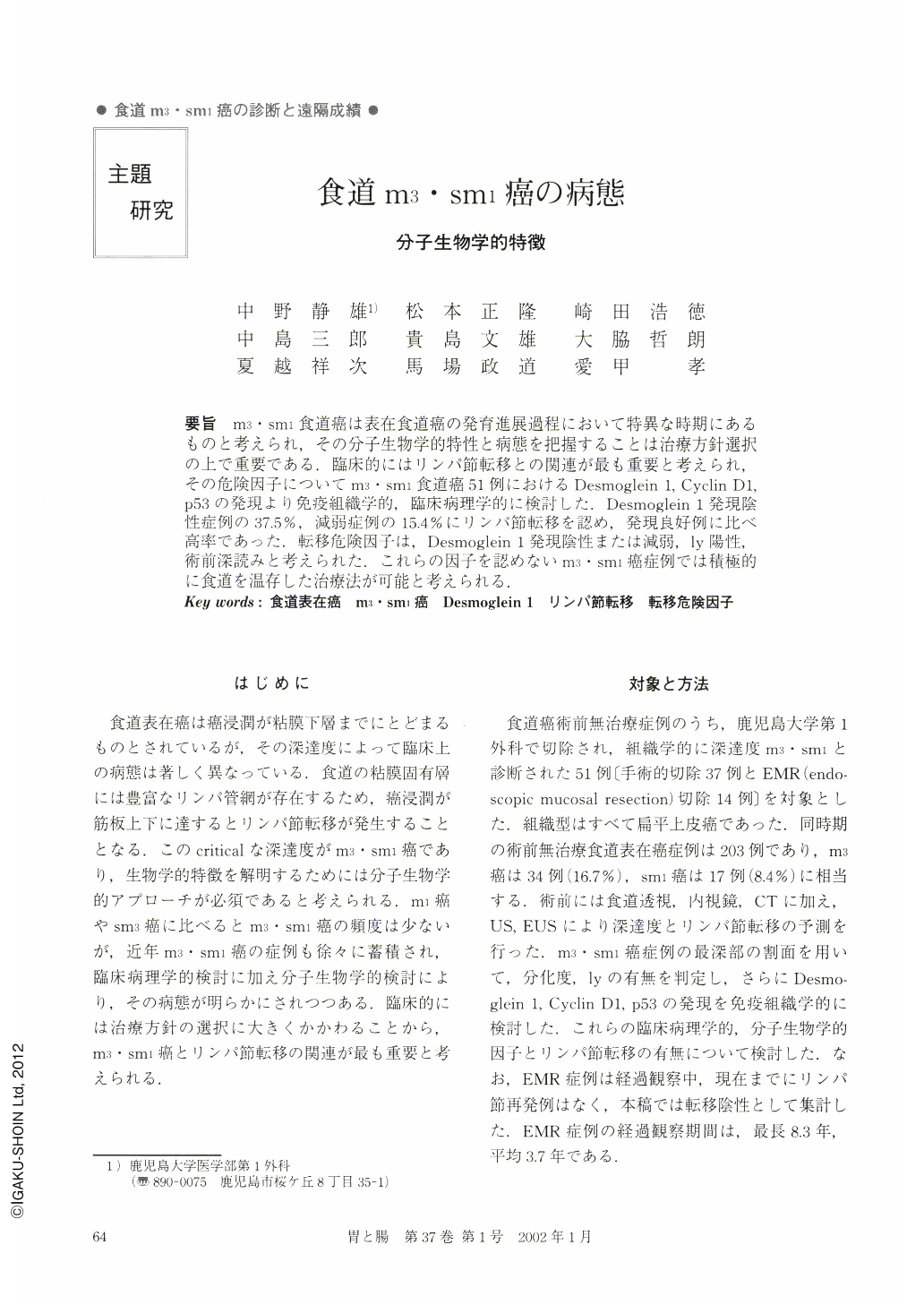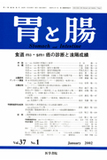Japanese
English
- 有料閲覧
- Abstract 文献概要
- 1ページ目 Look Inside
- サイト内被引用 Cited by
要旨 m3・sm1食道癌は表在食道癌の発育進展過程において特異な時期にあるものと考えられ,その分子生物学的特性と病態を把握することは治療方針選択の上で重要である.臨床的にはリンパ節転移との関連が最も重要と考えられ,その危険因子についてm3・sm1食道癌51例におけるDesmoglein 1,Cyclin D1,p53の発現より免疫組織学的,臨床病理学的に検討した.Desmoglein 1発現陰性症例の37.5%,減弱症例の15.4%にリンパ節転移を認め,発現良好例に比べ高率であった.転移危険因子は,Desmoglein 1発現陰性または減弱,1y陽性,術前深読みと考えられた.これらの因子を認めないm3・sm1癌症例では積極的に食道を温存した治療法が可能と考えられる.
In m3/sm1 superficial esophageal carcinoma, estimation of the clinical and biological behavior is important to determine a suitable therapeutic strategy. Lymph node metastasis is one of the most important biological factors. We examined 51 patients with m3/sm1 carcinoma using immunohistochemical expression of Desmoglein 1 (DG1), Cyclin D1 and p53.
Among those, DG1 is closely related with lymphatic spread. Nodal metastases were found in 7 of 34 patients with negative/weak expression of DG1, and in none of 17 patients with strong DG1 expression. In addition, DG1 was also associated with deeper tumor invasion diagnosed preoperatively and lymph vessel invasion in the resected specimen. EMR may become applicable for curative treatment if clinical and biological characteristics are adequately examined.

Copyright © 2002, Igaku-Shoin Ltd. All rights reserved.


